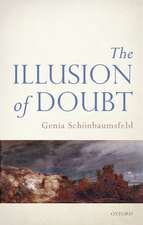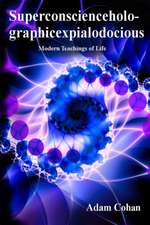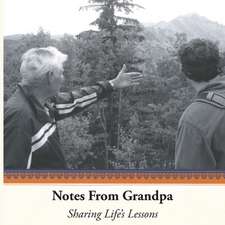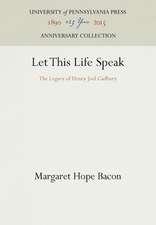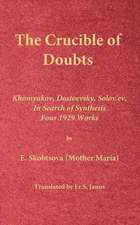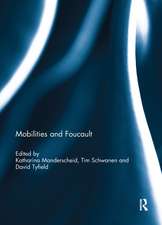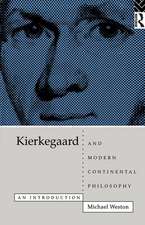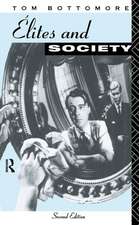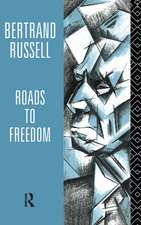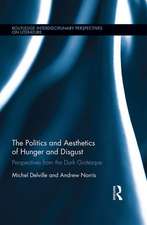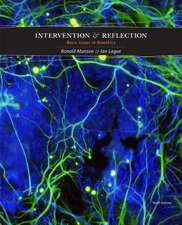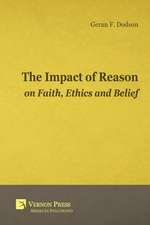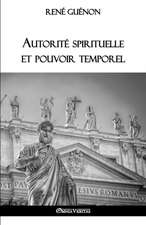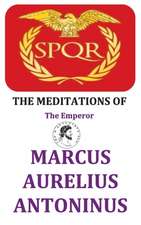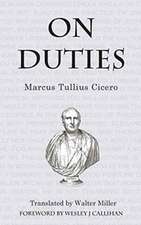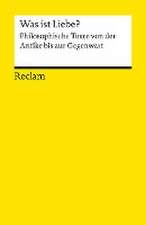Becoming Who We Are: Politics and Practical Philosophy in the Work of Stanley Cavell
Autor Andrew Norrisen Limba Engleză Hardback – 31 aug 2017
Preț: 575.87 lei
Preț vechi: 825.13 lei
-30% Nou
Puncte Express: 864
Preț estimativ în valută:
110.19€ • 115.36$ • 91.18£
110.19€ • 115.36$ • 91.18£
Carte tipărită la comandă
Livrare economică 26 martie-01 aprilie
Preluare comenzi: 021 569.72.76
Specificații
ISBN-13: 9780190673949
ISBN-10: 019067394X
Pagini: 328
Dimensiuni: 236 x 157 x 25 mm
Greutate: 0.57 kg
Editura: Oxford University Press
Colecția OUP USA
Locul publicării:New York, United States
ISBN-10: 019067394X
Pagini: 328
Dimensiuni: 236 x 157 x 25 mm
Greutate: 0.57 kg
Editura: Oxford University Press
Colecția OUP USA
Locul publicării:New York, United States
Recenzii
This book provides an introduction not only to the political and practical dimensions of Cavell's thought, but also to the oldest and deepest layers of his philosophy as a whole, found in the essays he published in Must We Mean What We Say? (1969), and in the first three parts of The Claim of Reason (1979) ... this is a deeply researched, clearly written, engaging and provocative book. There are insights on every page, and Norris is especially good at recovering the early California Cavell of Mates, Clarke, and Austin, integrating Rousseau's version of the social contract with ordinary language philosophy, and articulating and defending Cavell's Emersonian Perfectionism.
Andrew Norris, a political theorist with deep philosophical training, has written a brilliant book based on extensive scholarship that is clear in its exposition, comprehensive in its scope, and philosophically useful. If you have resisted Cavell, this book should lead you to reconsider; if you have been attracted to Cavell, this book will help you on your way; if you have not known Cavell, this is where to start.
We live politically within individual antagonisms and factional oppositions. Values are reduced to preferences, and unequal economic and political power decides whose preferences are unequally satisfied. In his passionate, patient, and acutely insightful study of Stanley Cavell's political thinking—the first systematic work of its kind—Andrew Norris tracks Cavell's efforts to move us beyond this condition and "toward the light or instinct of freedom." There is no better place to look for an account of the possibility of democratic political hope.
Andrew Norris is an ideal reader of Cavell—a philosopher for whom reading texts, art, and people, and being read, in turn, by them are central concerns. Cavell's philosophy aims to recover the human voice, most especially one's own voice, from its "skeptical" denial in traditional skepticism and constructive metaphysics. Norris's originality lies in his sense of the intimacy of the connection between self-denial and self-recovery and in being alert to the ethical and political implications of the idea that Cavell traces in the writings of Wittgenstein, Emerson and Thoreau, namely, that in order to find ourselves we must first lose ourselves.
Andrew Norris, a political theorist with deep philosophical training, has written a brilliant book based on extensive scholarship that is clear in its exposition, comprehensive in its scope, and philosophically useful. If you have resisted Cavell, this book should lead you to reconsider; if you have been attracted to Cavell, this book will help you on your way; if you have not known Cavell, this is where to start.
We live politically within individual antagonisms and factional oppositions. Values are reduced to preferences, and unequal economic and political power decides whose preferences are unequally satisfied. In his passionate, patient, and acutely insightful study of Stanley Cavell's political thinking—the first systematic work of its kind—Andrew Norris tracks Cavell's efforts to move us beyond this condition and "toward the light or instinct of freedom." There is no better place to look for an account of the possibility of democratic political hope.
Andrew Norris is an ideal reader of Cavell—a philosopher for whom reading texts, art, and people, and being read, in turn, by them are central concerns. Cavell's philosophy aims to recover the human voice, most especially one's own voice, from its "skeptical" denial in traditional skepticism and constructive metaphysics. Norris's originality lies in his sense of the intimacy of the connection between self-denial and self-recovery and in being alert to the ethical and political implications of the idea that Cavell traces in the writings of Wittgenstein, Emerson and Thoreau, namely, that in order to find ourselves we must first lose ourselves.
Notă biografică
Andrew Norris teaches political philosophy at the University of California, Santa Barbara. He is the editor of Truth and Democracy (University of Pennsylvania, 2012), The Claim to Community: Essays on Stanley Cavell and Political Philosophy (Stanford, 2006), and Politics, Metaphysics, and Death: Essays on Giorgio Agamben's Homo Sacer (Duke, 2005), and the author of over thirty peer-reviewed articles on authors such as Wittgenstein, Hegel, Hannah Arendt, and Michael Oakeshott.

